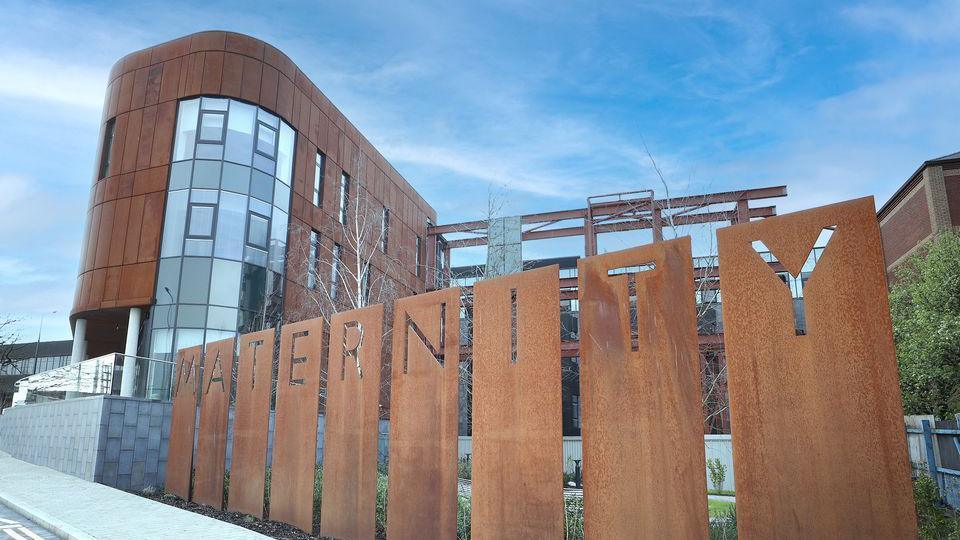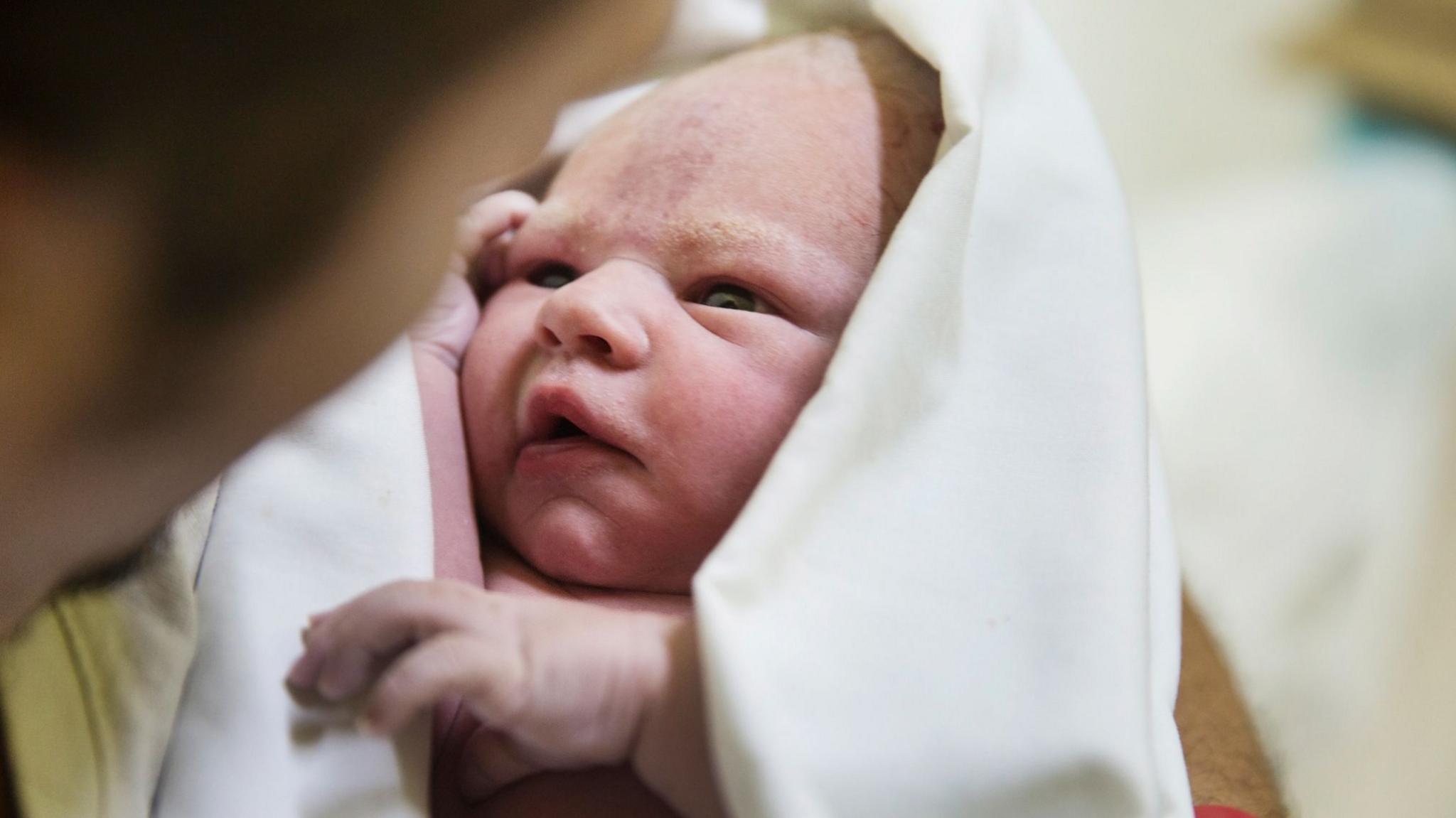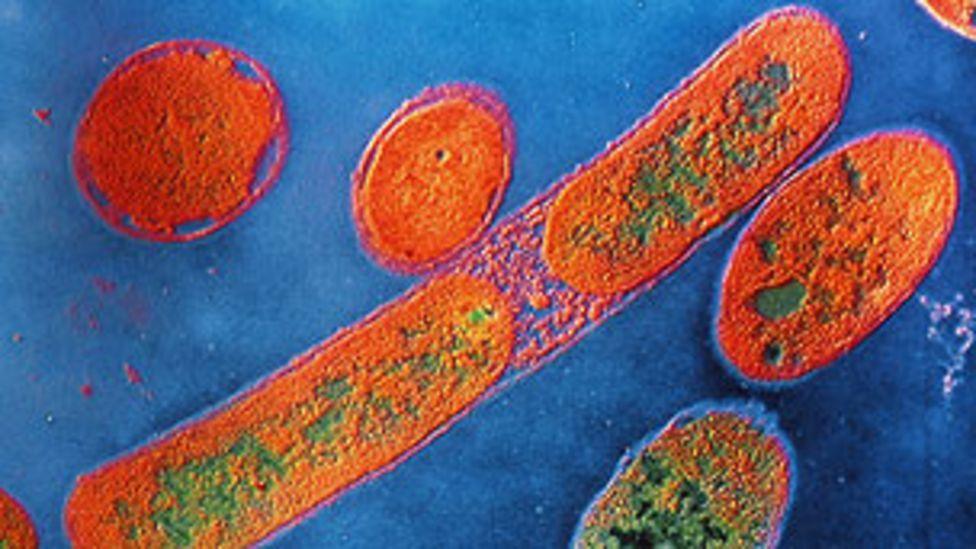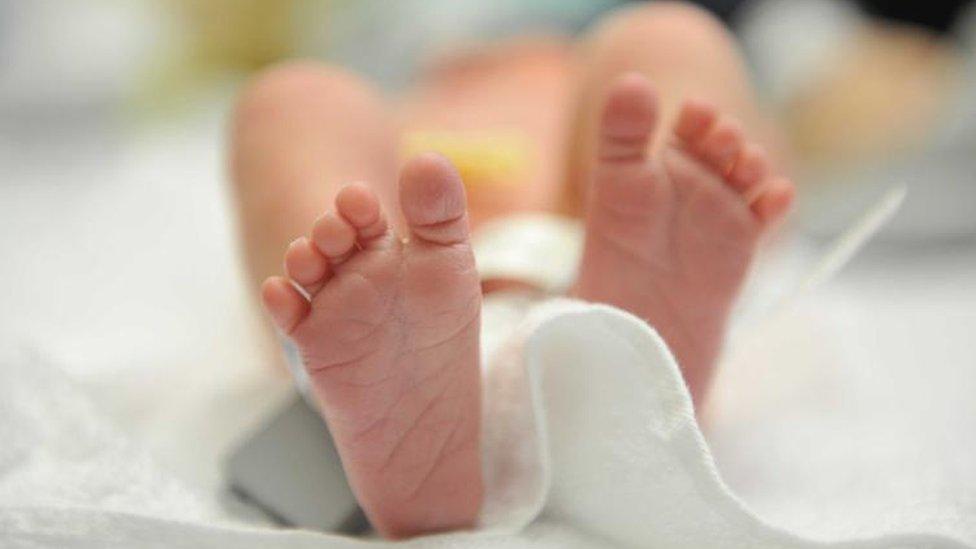New maternity hospital delayed after bacteria found

Belfast Trust took possession of the new hospital in March
- Published
The opening of a new maternity hospital could face significant delays due to the high presence of a bacteria in its water system, the Belfast Trust has said.
The hospital, at the Royal Victoria site in Belfast, is already almost 10 years behind schedule after numerous delays but it was hoped it would finally open next year.
The trust took possession of the five-storey building in March and began a "clinical commissioning phase" - a process of ensuring a safe transition of service to the new site.
First reported by PA news agency, the trust said that during testing of water outlets, high levels of Pseudomonas aeruginosa were discovered in the water system.
Pseudomonas infection killed three babies at Belfast's Royal Jubilee Hospital in 2012.
The infection does not usually affect healthy people but infants and people with weakened immune systems are vulnerable.

The Belfast Trust said it is "developing a remediation plan"
The Belfast Trust said it is "developing a remediation plan" for the water systems, which could "significantly impact on timescales for occupation of the building".
The trust added it acknowledges that, "for a number of reasons", the new maternity building has taken a long time to complete.
A Northern Ireland Audit Office report, external earlier this year said the hospital was originally expected to be completed by the end of 2015.
The report said: “Whilst the new maternity hospital has been substantively built it is not operational. The latest estimated date for completion of the final phase of the Maternity Hospital is June 2025, almost 10 years late.
"The original cost estimate was £57 million, with costs now expected to be £97 million.”
The maternity hospital build is not the first time there has been a major delay on the RVH site.
The Critical Care building was delayed and well over budget.
'Disappointing'
The MP for West Belfast, Paul Maskey, has contacted the trust to request an update on the progress of the hospital
“It’s disappointing to learn through a news article posted on social media that the new maternity hospital at the Royal Hospitals is facing further delays," Mr Maskey said.
The Sinn Féin MP added that he had written to the trust's chief executive "to establish the facts behind this news report".
The new hospital is expected to have an admission unit, early pregnancy department and an active birthing centre with 10 dedicated rooms for mothers who choose midwifery-led care.
Also included in the development is a new neonatal unit with 45 cots.
A 10-bed ward is also located directly above the theatres to facilitate the care of high risk antenatal and postnatal women.
"Whilst this further delay is very disappointing, the safety of new mothers and their babies is our main priority," the trust added.
"We will continue to address the required remedial works in order to ensure the building is safe to open to provide high quality care for women and their babies."
What is Pseudomonas aeruginosa?

Pseudomonas aeruginosa is a relatively common type of infection encountered in UK hospitals
Pseudomonas aeruginosa is the definition of a tough bacterial strain, able to survive in harsh environments.
It is found widely in soil and stagnant water, and can infect humans and plants.
It does not usually cause illness in healthy people, but is described as an "opportunistic" organism, causing serious infection when our normal defences are weakened.
This means that it represents a genuine threat to the most vulnerable hospital patients, most commonly intensive care patients, those with depleted immune systems such as cancer patients, people with severe burns and premature babies in neonatal units.
Several babies have died in Northern Ireland from the bacteria.
Related topics
- Published5 April 2012
- Published29 August 2019
